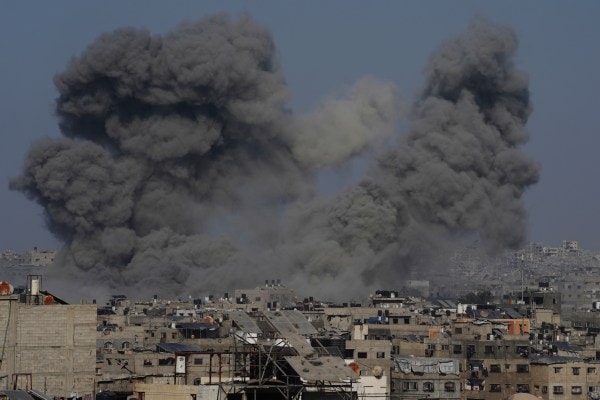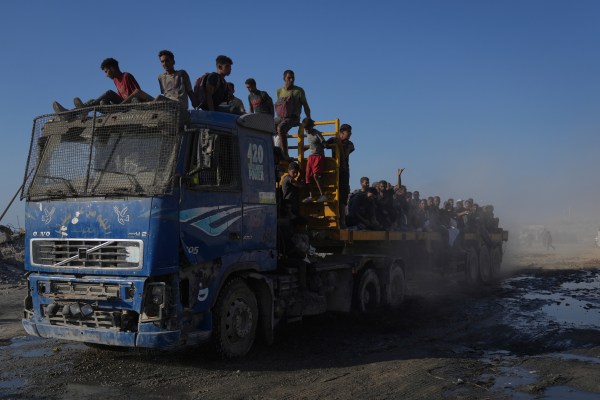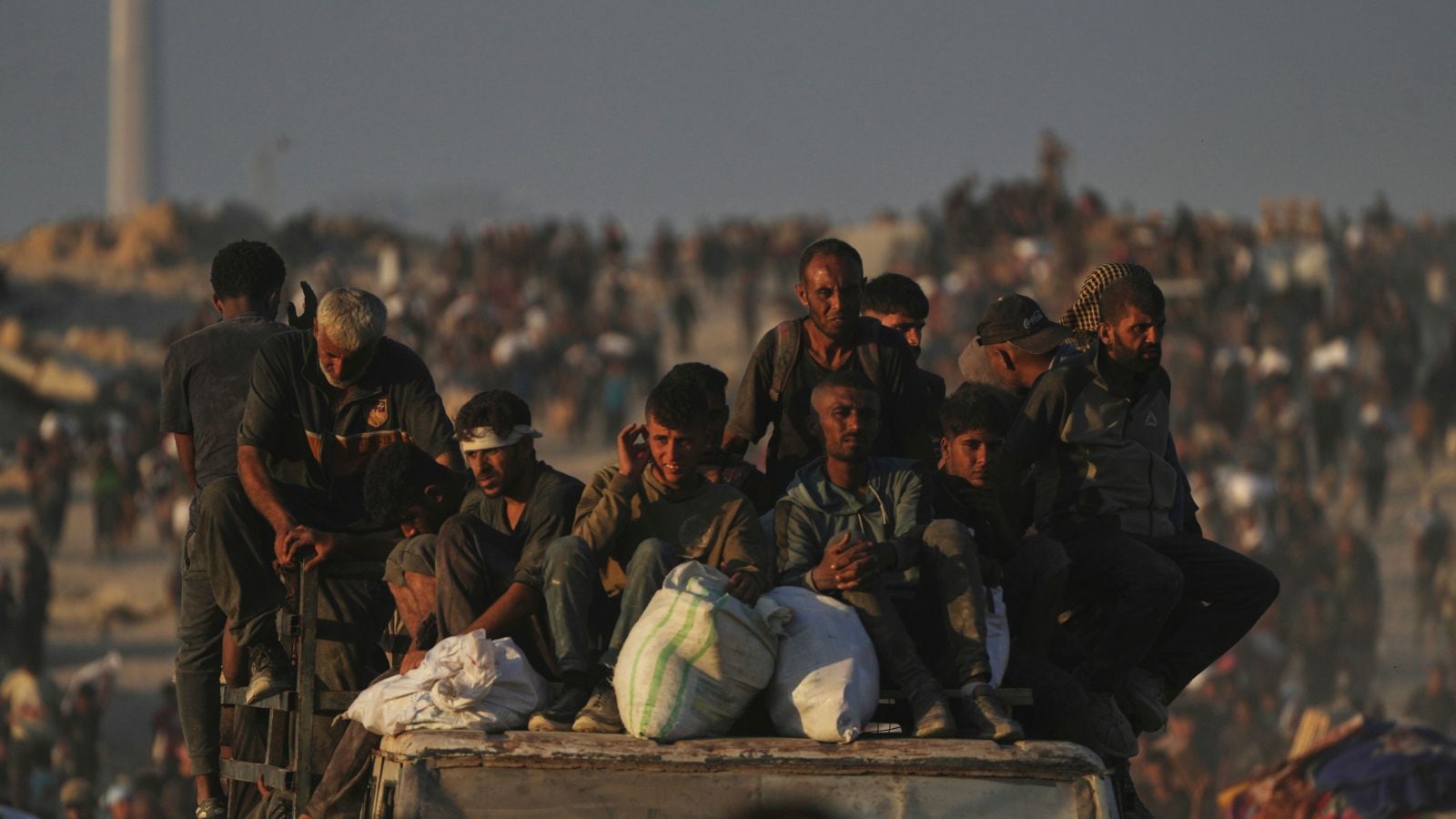Israeli aircraft and tanks struck the eastern and northern outskirts of Gaza City over the weekend, destroying homes and infrastructure as the country’s leadership vowed to expand its military campaign on the enclave’s largest urban centre, The Guardian reported. Witnesses described continuous explosions in Zeitoun and Shejaia while tanks shelled the Sabra neighbourhood and several buildings were destroyed in Jabaliya.
At least 15 people, including three journalists, were killed when Israeli strikes hit Gaza’s Nasser Hospital on Monday, Palestinian health officials said, according to Reuters.
Meanwhile, some residents began leaving the city, carrying belongings on vehicles and rickshaws. “No place is safe, but I can’t take the risk,” said Mohammad, 40, who fled with his wife and daughters. Others, however, said they had no choice but to remain. “We are not leaving, let them bomb us at home,” said Aya, 31, explaining her family could not afford transport or even a tent.
Story continues below this ad
About half of Gaza’s two million people live in Gaza City.
Israel has approved a plan for a large-scale offensive though its forces are not expected to enter the devastated city centre for several weeks, leaving space for Egypt and Qatar to push for renewed ceasefire talks.
 Smoke rises to the sky following an Israeli military strike in Gaza City. (AP Photo)
Smoke rises to the sky following an Israeli military strike in Gaza City. (AP Photo)
Humanitarian disaster deepens
Conditions in Gaza City have sharply deteriorated. A UN-backed food security report released Friday warned that a famine in the city and surrounding areas is “entirely man-made” and spreading rapidly. “Starvation is present and is rapidly spreading … avoidable deaths will increase exponentially,” the Integrated Food Security Phase Classification (IPC) said, according to The Guardian.
On Sunday, Gaza’s health ministry reported eight new deaths from malnutrition and starvation, bringing the total to 289, including 115 children, since the war began. Meanwhile, Gaza’s civil defence said at least 42 people were killed in Israeli airstrikes on Sunday, including eight in Sabra.
Story continues below this ad
The Associated Press also reported that Israeli forces shot and killed four Palestinians seeking food aid in a military zone south of Gaza City. Witnesses said the gunfire erupted when crowds pushed toward a distribution site run by a US-backed contractor.
Hamas presence fades, but not gone
Hamas, which made Gaza City its administrative capital after seizing control in 2007, has largely vanished from public view. Its offices and police stations have been destroyed, and its militants now operate underground. “The sons of b**ches have no control … sometimes you find them appearing suddenly, you don’t know where from,” one resident told CNN.
Still, the group has sought to project strength.
 Palestinians ride on a truck used to transport humanitarian aid as it drives to Gaza City from the northern Gaza Strip. (AP Photo)
Palestinians ride on a truck used to transport humanitarian aid as it drives to Gaza City from the northern Gaza Strip. (AP Photo)
Earlier this year, its fighters staged public ceremonies during hostage releases. More recently, a subgroup, known as Al Rade’a, surfaced in videos threatening gangs accused of stealing aid.
“Hamas is not a static institution or figure,” Alex Plitsas, a senior fellow at the Atlantic Council, told CNN. “They’ve gone on a recruiting spree and replaced folks that were there … they effectively act like an insurgent force for an elected government in the middle of a war.”
Story continues below this ad
Israel’s defence minister Israel Katz Sunday vowed to press ahead with the offensive, warning earlier that Gaza City would be razed unless Hamas ended the war on Israel’s terms and released remaining hostages. Hamas countered that only a ceasefire agreement could bring about the release of hostages, blaming Prime Minister Benjamin Netanyahu for their fate.
Meanwhile, Israel faces international scrutiny. It is defending itself at the International Court of Justice against allegations of genocide while the International Criminal Court has issued arrest warrants for Netanyahu, his former defence minister Yoav Gallant, and Hamas’s late military chief Mohammed Deif.
(With inputs from The Guardian, CNN)

